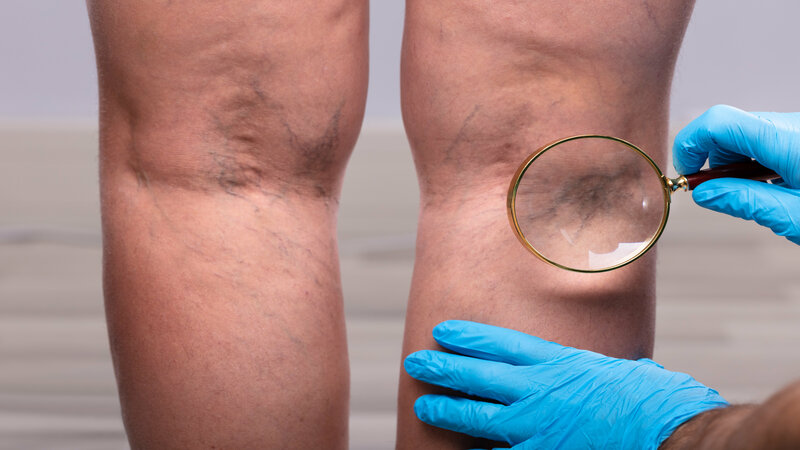Footwear plays a major role in our overall health, more than many people realize. From the way we walk to how our joints feel as we age, shoes can either help us stay comfortable or cause chronic problems. But what do foot health experts really say about the impact of footwear over time? According to podiatrists, your shoe choices can shape your foot health for years to come. This is especially important for people living active lifestyles or those already experiencing foot pain.
Let’s take a closer look at how podiatrists approach shoe recommendations and what they say about the long-term effects of different footwear choices.
How Podiatrists View the Impact of Footwear on Long-Term Health
Podiatrists agree that shoes can directly affect your posture, balance, and even your back and knees. Poor footwear choices don’t just stop at the feet—they can cause a domino effect on your entire body. Shoes with inadequate arch support or soles that are too flat can strain the muscles in your feet and legs, leading to long-term pain or injury.
Over time, improper shoes may lead to chronic foot problems such as plantar fasciitis, bunions, flat feet, and even issues with joint health. According to foot health experts, wearing the right shoes early on can prevent many of these issues before they start.
What Type of Shoes Do Podiatrists Recommend for Foot Problems?
When someone walks into a podiatrist’s office complaining about foot pain, one of the first questions the doctor often asks is, “What kind of shoes do you wear?” This is because shoes can either cause or relieve pain, depending on their design. Podiatrists recommend shoes that offer arch support, cushioning, and a firm heel counter to help stabilize the foot.
People dealing with plantar fasciitis, flat feet, or heel spurs may benefit from orthopedic shoes or specially designed plantar fasciitis shoes. These shoes help with alignment and reduce stress on sensitive areas. The best footwear for foot health recommended by podiatrists usually includes sneakers with proper support, rather than unsupportive flip-flops or high heels.
Why Do Podiatrists Recommend Orthopedic Shoes?
Orthopedic shoes aren’t just for the elderly—they’re designed to provide all-day comfort, especially for people who spend a lot of time on their feet. These shoes are crafted to relieve pressure points, correct foot posture, and support the arches. Many podiatrists say orthopedic footwear is better for long-term foot health, especially for people with chronic foot problems or existing medical conditions like diabetes.
What Podiatrists Say About High Heels and Foot Health in the Long Run
High heels might look stylish, but podiatrists have long warned against their long-term use. The design of high heels shifts your weight to the front of the foot, putting strain on the toes and the ball of the foot. This can lead to nerve damage, bunions, hammertoes, and even knee and back pain.
For people who regularly wear high heels, many podiatrists in Phoenix, AZ suggest limiting wear to short periods and opting for more supportive footwear when possible. If you do wear heels, look for ones with lower elevation, thicker heels for balance, and extra cushioning for the balls of the feet.
Footwear for Joint Health and Posture
Footwear affects more than just the feet—it can impact your entire posture and joint health. Wearing shoes that lack support can cause you to walk incorrectly, leading to problems in your ankles, knees, hips, and lower back. Proper shoes help align your body naturally and reduce the risk of injury over time.
Footwear Choices for Long-Term Comfort and Foot Health
When it comes to long-term foot health, podiatrists recommend shoes that offer a balance of support and flexibility. For everyday use, athletic sneakers with good arch support and shock-absorbing soles are ideal. These types of shoes help distribute weight evenly and reduce pressure points on the foot.
Avoid shoes that are too tight or too flat. Footwear for active lifestyles should be breathable, fit well, and offer room in the toe box to avoid blisters and irritation. Footwear recommendations for preventing foot pain from podiatrists often emphasize wearing the right shoes for the activity—running shoes for running, hiking boots for trails, and casual sneakers for walking.
Are Sneakers Better for Foot Health Than Sandals, According to Podiatrists?
In general, yes. Sneakers usually offer better support, cushioning, and protection than sandals. While sandals might feel cooler in Phoenix’s hot climate, podiatrists warn that they can lead to issues like heel pain, especially if worn for long walks or daily use. If you do choose sandals, look for those with arch support and heel straps.
How Does Footwear Affect Foot Health in the Elderly, According to Podiatrists?
As we age, our feet naturally lose fat padding, flexibility, and strength. Foot health maintenance becomes even more important for seniors, and the wrong shoes can lead to dangerous slips, falls, and joint pain. Podiatrists in Phoenix, AZ emphasize the need for slip-resistant soles, roomy toe boxes, and extra cushioning in shoes for elderly individuals.
Comfortable, supportive footwear helps improve balance, reduces the chance of injury, and supports proper posture. Choosing the right shoes can also help alleviate common issues such as arthritis-related pain and diabetic foot concerns. Foot comfort becomes a top priority, and shoes must fit well without being too tight or loose.
Foot Care Tips from Podiatrists
Regular foot checkups, keeping toenails trimmed, and wearing socks made from moisture-wicking materials are simple yet effective foot care tips. Foot care tips often include rotating your shoes, wearing the right size, and avoiding going barefoot on hard surfaces. These small habits can go a long way in maintaining healthy feet for life.
Conclusion
Understanding how shoes affect long-term foot health is key to preventing pain and problems down the road. Podiatrists strongly encourage wearing shoes that fit well, provide proper arch support, and suit your daily activities. Whether you’re young or aging, active or sedentary, the right footwear can make all the difference.
If you’re unsure what’s best for your feet, don’t guess—talk to podiatrists in Phoenix, AZ for personalized advice. They can help guide you toward the best choices for your lifestyle and needs, ensuring that your feet stay strong, healthy, and pain-free for the long haul.








